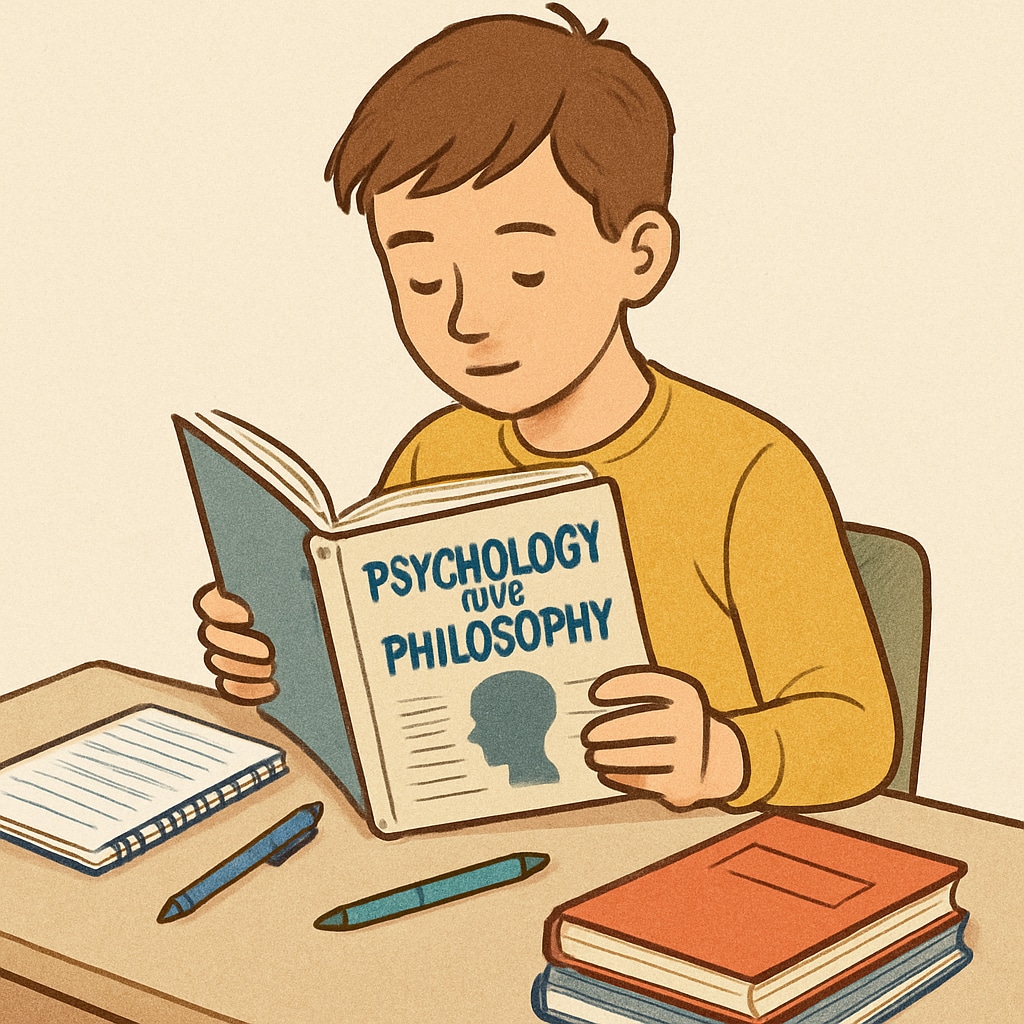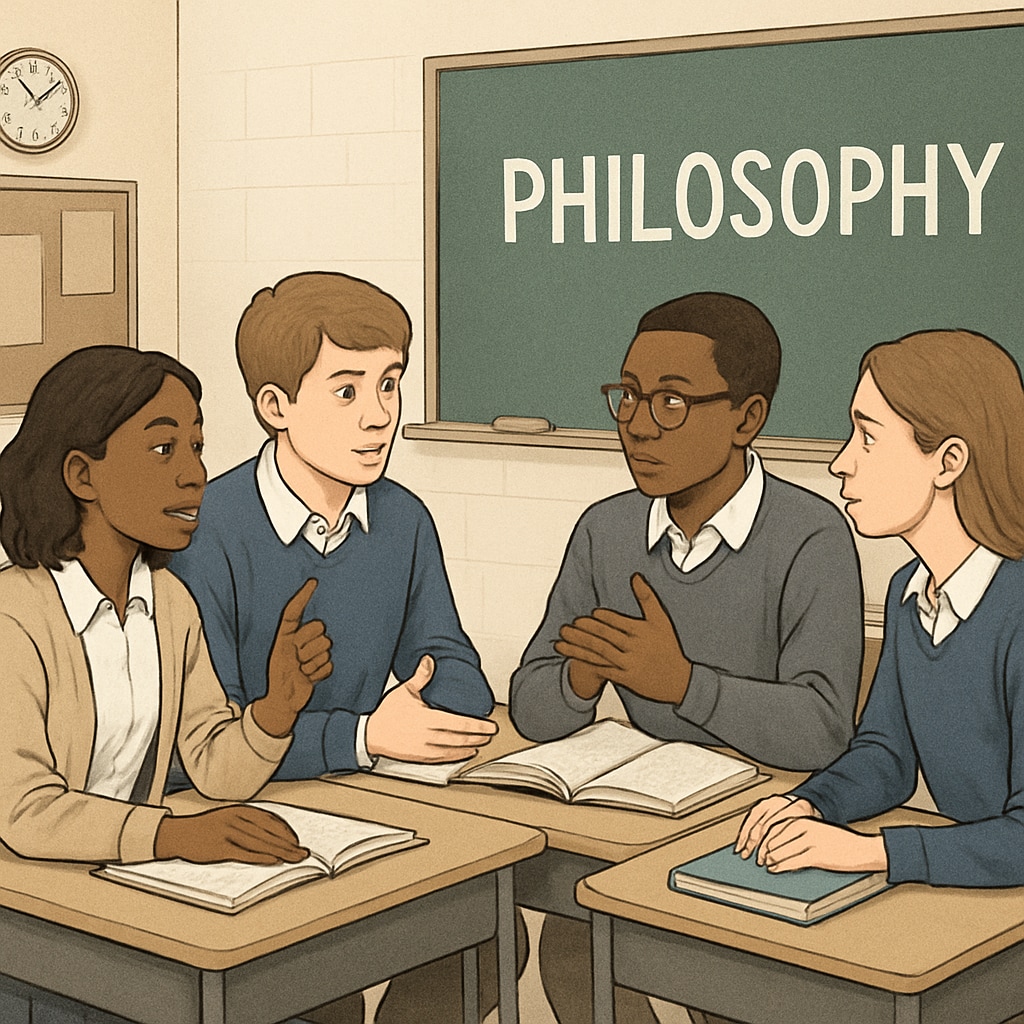In today’s fast-evolving educational landscape, introducing psychology, philosophy, and self-learning during the K12 stage can significantly shape students’ abilities to think critically and creatively. While these subjects are often reserved for higher education, young learners can benefit immensely from exploring these fields early on. This article provides practical guidance and resources to help students delve into psychology and philosophy, fostering a lifelong passion for understanding the mind and the world.
Why Start Early with Psychology and Philosophy?
Psychology and philosophy are foundational disciplines that encourage students to question, explore, and analyze the world around them. Starting early allows learners to develop essential skills such as critical thinking, empathy, and ethical reasoning. For example, understanding psychological concepts like motivation or emotional intelligence can enhance interpersonal relationships, while philosophical inquiry nurtures curiosity and clarity in thought.
Moreover, these subjects complement formal education by broadening students’ perspectives. By engaging with self-learning resources, they can acquire knowledge at their own pace, making the learning process more flexible and enjoyable.

Top Resources for Self-Learning Psychology
Psychology can be an engaging subject for K12 students when approached through accessible and age-appropriate resources. Here are some recommendations:
- Books: “The Psychology Book” by DK is a visually appealing introduction to essential psychological concepts. Another great option is “Emotional Intelligence 2.0” by Travis Bradberry and Jean Greaves, which focuses on practical applications.
- Online Courses: Platforms like Coursera and edX offer beginner courses on psychology that are suitable for young learners.
- Podcasts: “The Psych Files” is an engaging podcast with episodes tailored to psychology enthusiasts of all levels.
- Apps: Apps like “Moodpath” and “Headspace” introduce basic psychological concepts such as mindfulness and emotional health.
By combining these resources, students can dive deeper into topics like human behavior, cognitive processes, and emotional well-being.
Exploring Philosophy Through Self-Learning
Philosophy encourages students to ponder significant questions about existence, morality, and knowledge. For K12 learners, the key is to start with simplified materials that make philosophical ideas accessible and relatable.
- Books: “The Philosophy Book” by DK provides a beginner-friendly overview of major philosophical ideas and thinkers. “Sophie’s World” by Jostein Gaarder is another excellent choice for young readers.
- Videos: YouTube channels like CrashCourse offer engaging introductions to philosophy topics.
- Interactive Tools: Websites such as Stanford Encyclopedia of Philosophy provide detailed yet accessible entries on philosophical subjects.
- Discussion Forums: Platforms like Reddit’s Philosophy subreddit can introduce students to open discussions and debates.

These resources help students grasp concepts such as logic, ethics, and metaphysics, sparking meaningful conversations and personal reflection.
Combining Psychology and Philosophy for Holistic Growth
One of the most powerful ways to nurture critical thinking during the K12 stage is by combining psychology and philosophy. The intersection of these fields encourages students to analyze both the inner workings of the mind and the external world’s complexities. For instance, studying ethical dilemmas in philosophy alongside psychological theories about decision-making offers a comprehensive understanding of human behavior.
Teachers and parents can support this integration by encouraging reflective practices like journaling or open-ended discussions. These activities help students connect abstract ideas with their own experiences, making the learning process more engaging and relevant.
Self-Learning Tips for K12 Students
Self-learning requires discipline and curiosity. Here are some tips to make the process more effective:
- Set clear goals for what you want to learn and why.
- Create a learning schedule that balances schoolwork and self-study.
- Use diverse formats like books, videos, and interactive tools to keep the process engaging.
- Discuss your learning with peers or mentors to gain new perspectives.
- Reflect on what you’ve learned and how it applies to your life.
By following these tips, students can make self-learning a rewarding and enjoyable experience.
Conclusion: Introducing psychology and philosophy during the K12 stage opens up a world of possibilities for young learners. With the right resources and guidance, students can develop critical thinking skills, emotional intelligence, and ethical reasoning, laying the foundation for lifelong growth and exploration.


